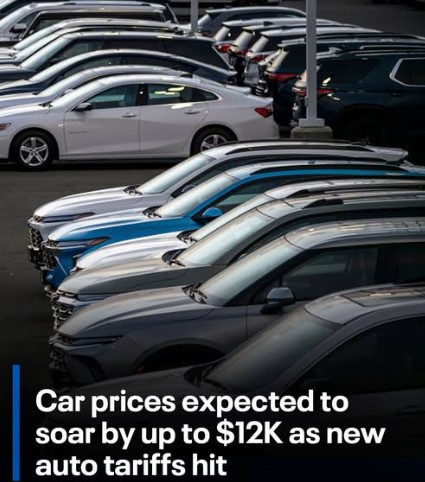U.S. Imposes 25% Tariffs on Auto Imports, Sparking Global Backlash
Background and Policy Implementation
Former President Donald Trump announced the introduction of a 25% tariff on imported automobiles, a measure the administration asserts will promote domestic manufacturing. However, industry experts warn that these tariffs could impose financial burdens on automakers reliant on international supply chains.
The new tariffs, projected to generate approximately $100 billion in annual revenue, present complexities as even American car manufacturers source components from various countries. This tax increase, set to take effect in April, is expected to elevate production costs and potentially decrease sales. Trump maintains that the tariffs will encourage more manufacturing within the United States and eliminate what he views as an inefficient supply chain that spans the U.S., Canada, and Mexico.
International and Industry Reactions
The policy has provoked strong reactions from trade partners. Both Canada and the European Union have signaled potential retaliatory measures, arguing that the tariffs will negatively impact workers and consumers alike.
Impact on Consumers and the Auto Industry
Economic analysts anticipate that these tariffs will lead to a significant rise in vehicle prices, which could place additional financial strain on consumers.
According to financial expert Shelby Rothman, car prices may increase by an estimated $4,000 to $12,000 per vehicle. Given that inflation was already at 3% prior to the tariff announcement, further price hikes could reduce consumer demand and lead to a decline in vehicle production. Analysts predict that approximately 20,000 fewer cars could be manufactured weekly, which may have consequences for employment within the auto sector.
In addition to affecting fully assembled cars, the tariffs will also apply to imported automotive components. Many vehicles assembled in North America, such as the Chevrolet Silverado, incorporate parts from multiple countries. Despite being branded as American-made, such vehicles will still be subject to the 25% tariff, potentially increasing overall costs for both manufacturers and buyers.
Stock Market Response
Financial markets reacted immediately to the announcement, with U.S. automakers experiencing declines in stock value. On the day of the announcement, stock prices of major manufacturers fell by approximately 5%. General Motors saw its shares drop by 3%, while Stellantis, the parent company of Jeep and Chrysler, reported a decline of nearly 3.6%. Ford, in contrast, saw a slight increase in stock value.
Looking Ahead
The long-term effects of these tariffs remain uncertain. While the administration argues that this policy will enhance domestic manufacturing, industry experts caution that rising costs and potential retaliatory measures from trade partners could disrupt the auto market and employment levels. As international responses unfold, automakers and consumers alike will be closely monitoring the economic consequences of this decision.

